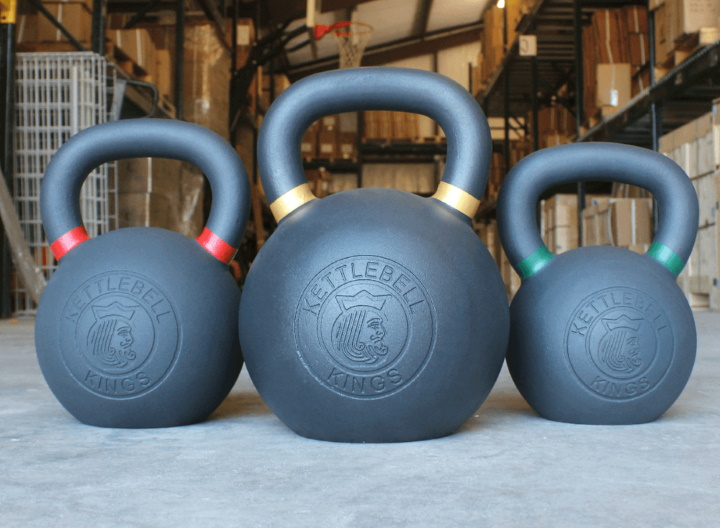Why Entrepreneurs are Turning
to Self-Storage to Solve their Space Needs
According the SBA, over 433,000 businesses will start this year, which will add to the total of roughly 33.2 million total businesses in the U.S. Many of these business start-ups are small, sole proprietor operations with the dominant sectors being in the construction/trades, business services, food/restaurant, and health/beauty/fitness fields.
One thing that many, if not most, of these businesses have in common is their lack of storage space. The reasons for this are several.
First, roughly half of all businesses are home-based businesses. Depending on the type of business that is being run out of the home, there may be needs to store such things as product inventory, office or construction equipment, product samples, business files, and more.
In these instances, many of these companies turn to self-storage facilities to give the extra storage they need.
Take the case of MomBeach.com, a company that works out of owner Becky Beach’s home. MomBeach mostly dropships their products, but when they have a high demand for a certain product, they import the item and store it. Becky says she currently rents two medium-sized, 10 x 10 units to house these products. She like to use self-storage, because she doesn’t know if she will need space all the time for extra products. Becky went on to say that using self-storage is more cost-efficient than purchasing a warehousing lease.
 Another home-based business that uses self storage is Black-Tie Babysitting. Hope Oriabure Hunter’s unique company provides onsite childcare for special occasions and events. They provide everything needed to entertain the child while the parents are occupied including toys, games, activities and baby gear for the child guest. Hope says that they currently rent about 300 square feet of storage space, which runs them about $245 per month. This allows her to store all their games, toys, and baby gear such as car seats, cribs, portable beds, high chairs, play yards, and more. Hope says that having storage has allowed her to separate her personal life and business life. “I can have staff and clients meet me at my storage units rather than come to my home. Storage really helped establish us a professional business since I office out of my home.” She added that this also allows her room to expand if the company needs it.
Another home-based business that uses self storage is Black-Tie Babysitting. Hope Oriabure Hunter’s unique company provides onsite childcare for special occasions and events. They provide everything needed to entertain the child while the parents are occupied including toys, games, activities and baby gear for the child guest. Hope says that they currently rent about 300 square feet of storage space, which runs them about $245 per month. This allows her to store all their games, toys, and baby gear such as car seats, cribs, portable beds, high chairs, play yards, and more. Hope says that having storage has allowed her to separate her personal life and business life. “I can have staff and clients meet me at my storage units rather than come to my home. Storage really helped establish us a professional business since I office out of my home.” She added that this also allows her room to expand if the company needs it.
Another business sector that often needs commercial self storage is the home construction/remodeling industry. Often, these companies are sole proprietorships that do not have a place to keep remodeling supplies and equipment such as paint, tile, drywall, baseboards, plumbing supplies, table saws, etc. Storing these items in a storage unit provides them with easy access whenever they need them. Most storage facilities also have long access hours from early in the morning to late at night, which contractors like.
 Colby Hager owns Capstone Homebuyers, a real estate investment company that flips houses. He rents two 10 ft x 10 ft storage units in different areas of San Antonio. Colby commented that he likes to use self-storage because, unlike his personal garage for example, he can give his contractors access to the storage unit nearest to the project they are working on.
Colby Hager owns Capstone Homebuyers, a real estate investment company that flips houses. He rents two 10 ft x 10 ft storage units in different areas of San Antonio. Colby commented that he likes to use self-storage because, unlike his personal garage for example, he can give his contractors access to the storage unit nearest to the project they are working on.
Skyrocketing Commercial Rent
Another reason that businesses are turning to self-storage is the rising cost of commercial space for rent. According the Orange County Register, commercial lease rates have increased approximately 70 percent since 2009. Companies are finding that their office spaces and retail stores lease costs are rising to the point of being unaffordable.
 This was the case for Jay Perkins, founder of Kettlebell Kings in Austin, Texas. Kettlebell Kings recently moved out of their physical facility, instead opting to use two fulfillment centers in different parts of the country to house their products. This left them in need of a place to store other items like show and event equipment, product samples, and promotional items like t-shirts. Jay explained that he chose self-storage over another office space to save money and to allow he or his team to access what they need, when they need it. Kettlebell Kings recently made the Inc. 5000 list of fastest growing privately-held companies.
This was the case for Jay Perkins, founder of Kettlebell Kings in Austin, Texas. Kettlebell Kings recently moved out of their physical facility, instead opting to use two fulfillment centers in different parts of the country to house their products. This left them in need of a place to store other items like show and event equipment, product samples, and promotional items like t-shirts. Jay explained that he chose self-storage over another office space to save money and to allow he or his team to access what they need, when they need it. Kettlebell Kings recently made the Inc. 5000 list of fastest growing privately-held companies.
Weighing the Pros and Cons
While the examples above show that using external self-storage can be beneficial for some small business owners, using self-storage isn’t for everyone.
Access
Most storage facilities are open from early morning (6-8 am) to late evening (9-11 pm). If you own a business that needs to access things like inventory or equipment outside of these hours, self-storage is probably not going to work for you. You may be able to find places that are open 24 hours, but they may not be close by.
Location
As stated above, location is definitely a factor. Depending on where your small business is, the nearest storage facility may be within a few blocks or miles, or it could be an hour away. If you’re in the latter group, self-storage won’t be a very convenient solution.
Storage Limitations
Storage facilities also have limitations on the types of items that can be stored in their storage units. Typically, any hazardous materials that are combustible will not be allowed. These include things like gasoline, oil, propane, butane, fireworks, and other items. Also, you won’t be allowed to keep toxic items such as chemicals, poisons, fertilizer, and other substances. Weapons are almost always an exclusion, as are perishable foods, live animals, or plants. Check with the storage facility that you’re considering to see their list of excluded items.
Cost
Storage unit rentals range anywhere from $40-$70 per month for a small, 5 x 5 storage unit, to $400-$700 for a 10 x 30 unit depending on what city it is in and the type of storage unit you get (drive-up access unit vs indoor unit, unheated vs heated, etc.) However, as competition increases, storage companies are lowering rates to stay competitive. Even so, you’ll still have to figure out how this extra cost stacks up against keeping your items in their current location.
For entrepreneurs and small business owners with limited storage options, self-storage could be a viable and pragmatic choice. Whether you decide to spring for it will be a decision you make after weighing the benefits and costs.

About the Author: Derek Hines
Digital Marketing Specialist
Derek is originally from the great state of Wisconsin (go Badgers), but is slowly becoming a Pacific Northwesterner. As part of the Digital Marketing team, he writes extensively on storage, moving and life for West Coast Self-Storage, based in Everett, Washington.

